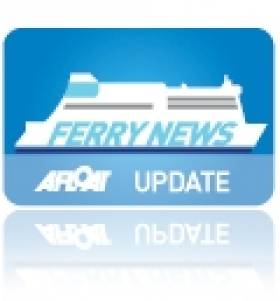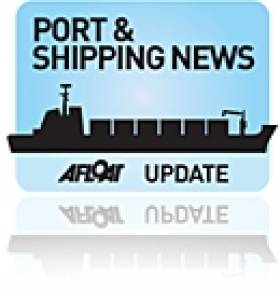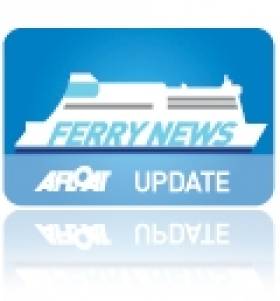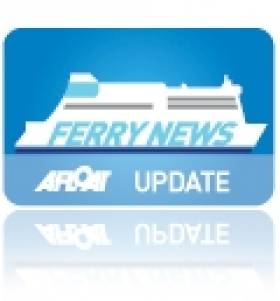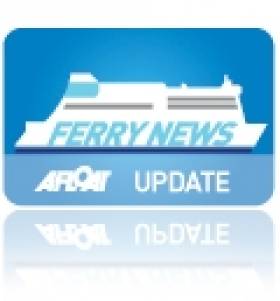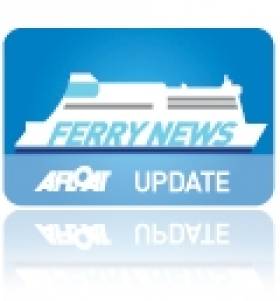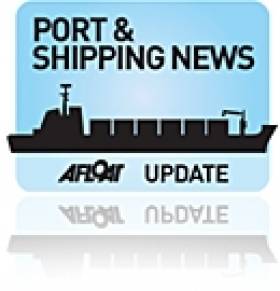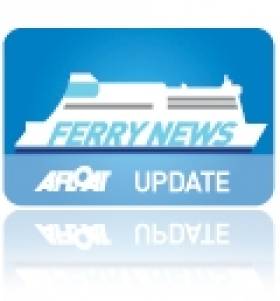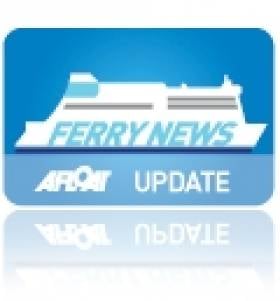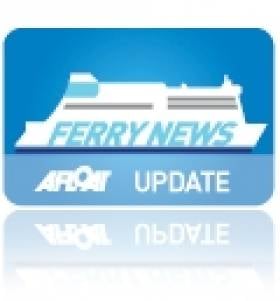Displaying items by tag: Fastnet Line
Cork-UK Ferry Link ‘Unfeasible’
#CorKWalesFerry – The reinstatement of a ferry link between Cork and the UK is not feasible in the current economic climate, according to a report compiled by transport experts, writes the Irish Examiner.
Cork County Council and the Port of Cork commissioned consultants Strategic Transport Solutions International to undertake a feasibility study of reopening the link after the ill-fated Fastnet Line ceased sailings in 2011.
The report concluded that in the present "economic and competitive climate", a new service cannot be justified commercially on the basis of the volume of passengers and freight achievable in the short term.
Traditionally the main ferry route between Britain and the south-west of Ireland has been Swansea to Cork. However, this time the consultants looked at linking Cork with Newport in Wales, and Bristol in England. To read much more on this story, click here.
Ports & Shipping Review. Cargoships, WFSVs, Cork Ferry, IMERC, Dutch Navy & Last H&W Ferry Sold
#PORTS & SHIPPING REVIEW - Over the last fortnight Jehan Ashmore reports from the shipping scene which saw a 'Pop-Up Village' delivered by cargoship to Galway Port in readiness for the Volvo Ocean Race festival which started yesterday and continues to 8 July.
Arklow Marine Services second wind-farm support vessel (WFSV) Gardian 10 was launched for UK owners and today the vessel travelled from Arklow to Belfast Port and berthed at the Abercorn Basin.
In the rebel county, efforts to revive the Cork-Swansea route took a new step when a group was formed to ascess the feasibility in re-launching the Celtic Sea link that closed last November after Fastnet Line went into examinership.
At the Taoiseach's Public Service Excellence Awards, the Irish Maritime Energy Research Centre (IMERC) based in Haulbowline, Cork Harbour, won an award which was presented by Minister for Justice Alan Shatter T.D. at a ceremony held in Dublin Castle.
Across the world the International Maritime Organisation (IMO) highlighted the Day of the Seafarer on 25 June, where the role of those who work on ships provide a vital service in transporting essential goods on a global scale to meet our needs on a daily basis.
Dublin Port welcomed a flotilla from the Royal Netherlands Navy this weekend, where two of the vessels including a torpedo-training ship HNMLS Mercuur (A 900) was open to the public.
Today the cruiseship Saga Sapphire made her maiden 'Irish' port of call to Cobh having entered service in March for UK based operator Saga Cruises. The 706-passenger capacity ship is due to dock at Dublin Port tomorrow morning.
Former North Channel ferry stalwart Stena Caledonia which operated on the Larne/Belfast-Stranraer routes since 1990 has been sold by Stena Line to ASDP Ferry of Indonesia. She is the last ever passenger ship to have been built by Harland & Wolff shipyard in Belfast.
Pushing the Boat Out to Relaunch New Cork Ferry Service
#CORK FERRY RELAUNCH - According to today's Cork Independent, the Cork-Swansea ferry route which closed last Autumn has been followed-up by a new group to assess the feasibility of reopening the Celtic Sea service.
Those involved in the new group are from Cork County Council, the Port of Cork, Fáilte Ireland and representatives from the Irish Exporters Association which was announced by Mayor Tim Lombard, who believes that the wind up of Fastnet Line earlier this year and departure of ferry, has really hurt businesses in West Cork.
"There is a lack of tourism and a lack of business in West Cork this summer. There has been a major effect seen in the businesses in West Cork following the closure of the Fastnet Line," Cllr Lombard said. "It's why we are trying to push the boat out, if you pardon the pun," He added that the loss is also felt by the manufacturing sector which has lost a vital alternative freight link to the UK.
Former Fastnet Ferry Bids Farewell
#FASTNET FERRY – The ferry Julia (1981/22.161grt) which had operated the Fastnet Line Cork-Swansea service, set sail yesterday under her new name Wind Perfection, writes Jehan Ashmore.
Since the route closed in November last year (having only started in 2010) the German built ferry has been tied-up close to the city-centre in Cork. The ferry awaited an uncertain future after her co-operative owners failed to secure funds of €1m plus to maintain trading on the Celtic Sea.
Earlier this year she was sold to Dutch based C-Bed N.V. who are to re-fit the vessel, believed to be carried out in a shipyard in Denmark. The 1,860 passenger capacity ship is to be adapted for a new career as a floating dormitory for Siemens in the North Sea.
The vessel will be anchored at sea from where personnel working in the construction and servicing of offshore wind-farm turbine installations will be based.
Wind Perfection will join C-Bed's fleet which is also made up of two former ferries, one of which the Wind Ambition had also served Siemens while working at an offshore wind project in the Irish Sea.
Winds of Change face former Fastnet Ferry and Sistership
#FERRY NEWS - With the acquisition of Fastnet Line's Julia to C-BED as previously reported, the Dutch owned company's fleet rises to three floating hotels which are used to accommodate workers in offshore wind-farm energy installations, writes Jehan Ashmore.
All three vessels are former ferries and one of which the Wind Ambition was in recent years based in in the north Irish Sea. The third vessel is Wind Solution, for photos and technicl details of these vessels click HERE. While the former Cork-Swansea ferry has been renamed Wind Perfection (1981/22,161grt) , she remains berthed in Cork city docks having laid-up there since the route's closure last November.
The vessel is however due to undergo an extensive refit in The Netherlands before she takes up a charter in the North Sea with Siemens in October, as a floating hotel for wind-turbine industry employees.
By using the vessel Siemens are to save valuable time and money which would otherwise by the daily transfer of construction workers to and from the mainland. For a video computer simulation showing the different logistics involved between an offshore floating hotel and a conventional hotel onshore, click HERE.
Wind Perfection was originally built as Olau Britannia and shared sailings with sistership Olau Hollandia for a UK-Dutch route between Sheerness-Vlissingen operated by Olau Line.
The sisters were replaced by newer vessels on the North Sea route in the late 1980's and sold to various owners during the years. Before Julia made her Celtic Sea debut, she last ran under the same name for Stella Line on the St. Petersberg-Helsinki route.
Incidentally her sister Norlandia (1981/21,473grt) operates also from the Finnish capital to Tallinn for Eckero Line. Likewise she too is due to undergo changes as she is to be replaced later this year as a second-hand ferry from Mediterranean owners was sold to the Baltic Sea operator.
- Ferry news
- Fastnet Line
- CBed
- Celtic Sea ferry operator Fastnet Line
- Olau Line
- Julia
- Olau Britannia
- Olau Hollandia
- CorkSwansea
- Stella Lines
- Siemens
- Ports and Shipping News
- Irish Sea ferry news
- Eckero Line
- Nordlandia
- HelsinkiTallinn
- Wind Perfection
- Wind Ambition
- Wind Solution
- Offshore Floating Hotels
- WindFarm Instalations
- North Sea windfarms
Former Fastnet Ferry to Become Floating Hotel
#FERRY NEWS – The former Fastnet Line ferry Julia (1981 / 22,161grt) is to embark on a new life as a floating dormitory for workers building and servicing offshore wind turbines in the North Sea, according to The Examiner.
The rather ignominious end for the ferry once billed as one of the jewels in Cork tourism industry, marks the final chapter in the short and troubled life of Fastnet Line, which was set up by West Cork Tourism Co-operative.
At over 30 years-old the ship, which had capacity for 1,860 passengers, made its maiden voyage on the Cork-Swansea route in March 2010. She was bedevilled by mechanical problems in the first few days of operation, and in late 2011 the Celtic Sea service was withdrawn due to higher-than-expected fuel prices.
It had been hoped to restart the route this year, but Fastnet Line went into receivership last month. The vessel had been sold, reportedly for €5m, to C-BED, a Dutch-based company which are to rename her Wind Perfection.
For more on this story about the short-lived ferry operation click HERE.
New Ship-Management Company Launched in Cork
#PORTS & SHIPPING NEWS – The Irish Maritime Development Office (IMDO) have welcomed a newly founded ship-management company, Barry Shipping, which started operations in Cork at the end of last year.
The company headed by Corkonian Owen Barry, provides ship management, crew management, project management, training and a range of other services for the maritime industry.
Glenn Murphy, director of the IMDO said "We wish Barry Shipping well with their new venture and look forward to providing them with further strategic and network support to assist them during their continued development".
Commenting on their future strategy Barry said, "The company's aim is to provide clients with creative and profitable solutions to meet and overcome some of the unique challenges in the current climate".
Barry graduated from Cork Institute of Technology (CIT) in 1996 and started his career with BP Shipping as an Engineering Cadet. This was followed by working with leading passenger operators Irish Ferries, P&O Cruises and Dobson Fleet Management where he served as Chief Engineer and Technical Superintendent. In 2009 he returned to Cork to run operations for Fastnet Line.
For more information about the new company, visit www.barryshipping.com
In addition for details about the role of the (IMDO) which is Ireland's national dedicated development, promotional and marketing agency for the shipping services sector click HERE
Fastnet Line Closes For Good
#FERRY NEWS - The Fastnet Line ferry service between Cork and Swansea is to close with the loss of 78 jobs.
As previously reported on Afloat.ie, the operator had been in examinership since last November, and a restructured business plan had been submitted with a view to resuming high-season service in April.
However, in a statement the owners of the Fastnet Line said they had been unable to raise the €1m-plus investment required and that the examinership had "failed".
All 78 jobs will be lost as the company is set to be placed in receivership or liquidation later today.
The Fastnet Line - which was worth around €30 million to Cork in tourist spending - made its maiden voyage from Swansea to Cork in 2010, and was the only direct passenger and freight link between Wales and the south coast of Ireland.
The Irish Times has more on the story HERE.
Cork-Swansea Ferry Firm Must Secure €1m
#FERRY NEWS - The operators of the Celtic Sea ferry route between Cork-Swansea need to secure over €1m in investment today in order to save the company after being thrown a €300,000 funding lifeline by Cork's local authorities.
Cork City Council agreed last night to invest €100,000 in the Fastnet Line, bringing its total investment in the company to €365,000.
It followed a 90-minute behind closed doors presentation by Fastnet Line's acting chief executive officer, Pádraic O'Kane. He is due to meet Enterprise Ireland this morning to discuss further investment. He declined to discuss the amount involved, but it is understood to be in the region of €400,000.
Finance Wales will await the outcome of those talks before it agrees to pump up to €800,000 in to the firm. For more about this story in today's Examiner click HERE
€500k Sought to Restart Cork-Swansea Ferry Link
#FERRY NEWS - Approximately €500,000 is to be sought from three local authorities in the south-west region so to help restart the Cork-Swansea route which was served by the M.V. Julia (1982/22,161grt) until sailings ceased in November last year.
Representatives from Fastnet Line Ship Holdings Ltd are expected to attend a special meeting of Cork County Council next Monday at which they will outline a business plan for the company, which is in examinership.
They will also address a scheduled meeting of Cork City Council later the same day and are expected to communicate their request to Kerry County Council shortly.
For more about this story in today's Examiner click HERE



























